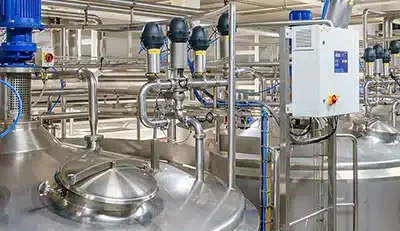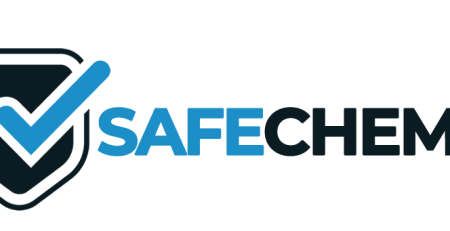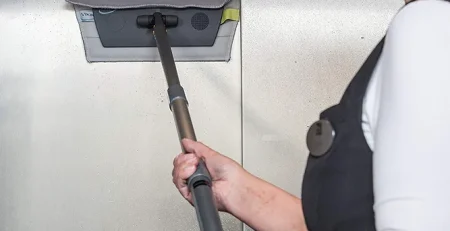Developing and Implementing Effective Cleaning Standard Operating Procedures (SOPs) in Foodservice Businesses
In Ireland’s thriving foodservice industry, maintaining impeccable hygiene standards is not just a regulatory requirement but a key driver of customer trust and business reputation. Effective cleaning standard operating procedures (SOPs) play a critical role in ensuring food safety, reducing risks of contamination, and optimising operations. This guide explores how to develop and implement robust cleaning SOPs tailored for foodservice businesses operating in Ireland.
Why Cleaning SOPs Are Essential
- Regulatory Compliance: Adhering to Irish and EU food safety standards, including the Food Safety Authority of Ireland (FSAI) guidelines, ensures compliance with HACCP (Hazard Analysis and Critical Control Points) principles.
- Food Safety: Effective cleaning minimises the risk of cross-contamination and foodborne illnesses.
- Operational Efficiency: Well-structured SOPs streamline cleaning tasks, saving time, resources, and costs.
- Consistency: SOPs standardise practices, ensuring the same high level of cleanliness every time, regardless of staff changes or turnover.
Steps to Develop Effective Cleaning SOPs
1. Conduct a Cleaning Audit
Begin by evaluating the current cleaning processes in your foodservice business:
- Identify high-risk areas prone to contamination, such as kitchen surfaces, food preparation zones, and storage areas.
- Assess equipment, utensils, and appliances requiring regular cleaning.
- Review existing cleaning products, tools, and techniques for effectiveness.
2. Define Cleaning Objectives
Establish clear goals for your cleaning SOPs, such as:
- Preventing microbial contamination.
- Maintaining compliance with Irish food hygiene standards.
- Optimising cleaning frequency to balance hygiene and operational needs.
3. Break Down Cleaning Tasks
Divide tasks into categories:
- Daily Cleaning: Countertops, sinks, floors, and frequently touched surfaces.
- Weekly Cleaning: Storage areas, walls, and less frequently used equipment.
- Monthly/Periodic Cleaning: Deep cleaning of appliances like ovens, freezers, and ventilation systems.
4. Specify Cleaning Procedures
For each task, outline:
- What: Areas, surfaces, or equipment to be cleaned.
- When: Frequency of cleaning.
- How: Step-by-step instructions, including tools, detergents, and techniques.
- Who: The responsible staff member or team.
5. Select Suitable Cleaning Products and Tools
Choose cleaning agents and tools that meet food safety requirements. Ensure they are:
- Non-toxic and food-safe.
- Effective against pathogens commonly found in foodservice environments.
- Approved under Irish and EU regulations.
6. Include Safety Guidelines
Incorporate safety measures to protect staff, such as:
- Proper handling and storage of cleaning chemicals.
- Use of personal protective equipment (PPE).
- Emergency procedures for spills or accidental exposure.
7. Document the SOPs
Create a detailed, easy-to-understand document with visual aids like charts or step-by-step illustrations. Ensure the language is clear and accessible for all staff levels.
Steps to Implement Cleaning SOPs
1. Train Your Team
Effective implementation begins with thorough training. Cover:
- The importance of cleaning SOPs for food safety.
- Proper use of cleaning products and equipment.
- Hands-on demonstrations of specific cleaning tasks.
2. Assign Responsibilities
Clearly define roles and responsibilities for each cleaning task to avoid confusion and ensure accountability.
3. Monitor and Enforce Compliance
Regularly inspect cleaning practices to ensure adherence to SOPs. Use checklists and logs to track completed tasks.
4. Review and Update SOPs
Periodically review your SOPs to incorporate:
- Changes in equipment or layout.
- New regulatory requirements.
- Feedback from staff or audits.
Benefits of Effective Cleaning SOPs
- Enhanced Food Safety: Consistent cleaning practices reduce contamination risks.
- Improved Staff Efficiency: Clear guidelines save time and minimise errors.
- Regulatory Peace of Mind: Meeting FSAI and EU standards reduces the risk of penalties.
- Customer Confidence: A visibly clean environment fosters trust and loyalty.
Conclusion
Developing and implementing effective cleaning SOPs is a cornerstone of success for foodservice businesses in Ireland. By focusing on compliance, efficiency, and safety, businesses can ensure a spotless reputation while meeting the highest food hygiene standards. Start with a comprehensive audit, engage your team, and continuously refine your procedures to keep your operations running smoothly and safely.












Leave a Reply